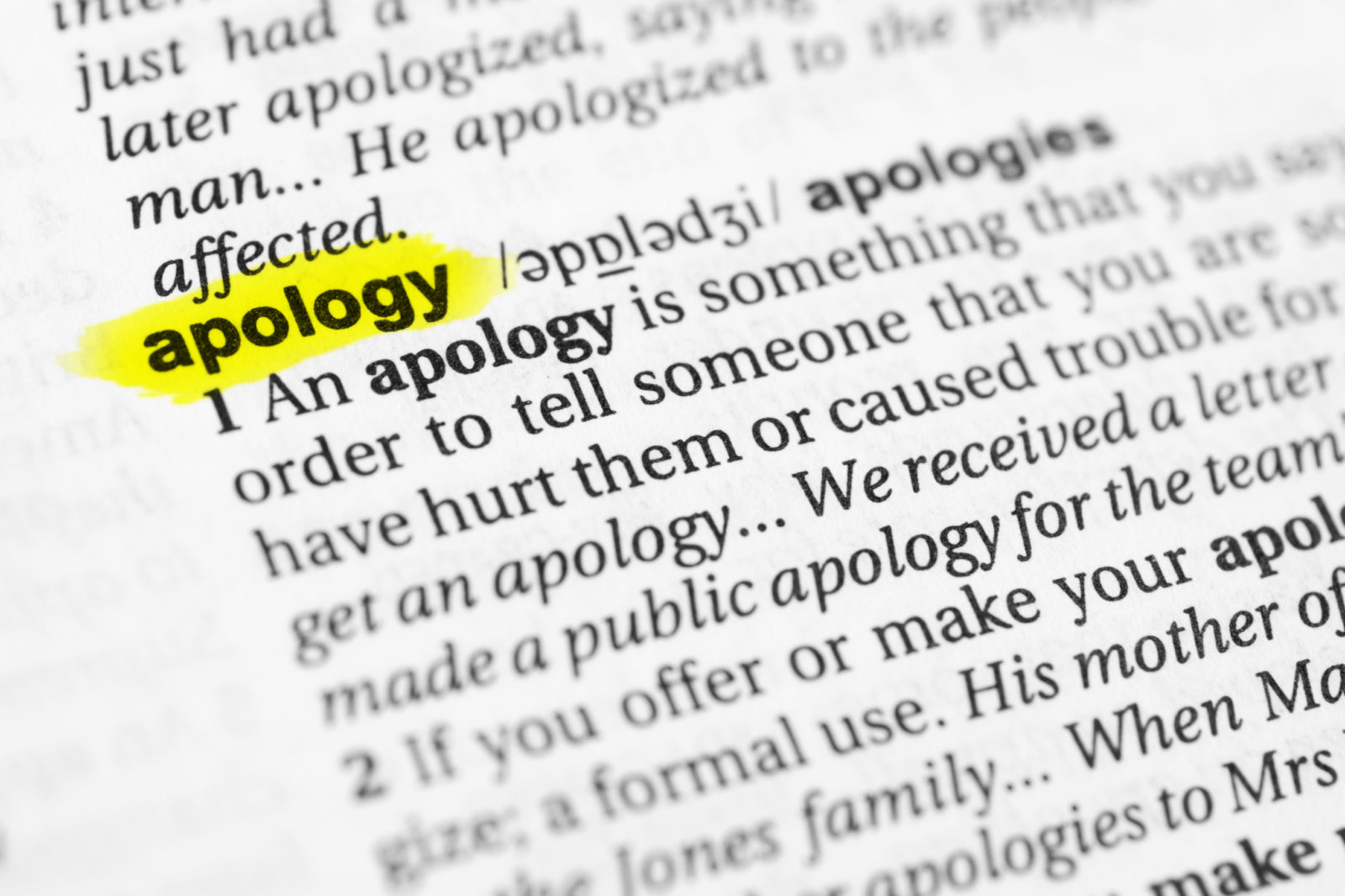A sincere apology improves our relationships – both personal and professional.
It’s a fact – the workplace is filled with human beings. And in your career, you will invariably run into situations where feelings get hurt and you’re eventually going to have to apologize to someone for something you did. It’s understandable that your first reaction might be to just duck-and-cover when things get heated. However, consider this – a strong leader is equipped with the right words and the right timing to tactfully address situations that require an apology. What’s at stake? The absent or poorly executed apology can compromise a relationship, or even end it. So, if you’ve made a mistake that you can’t fix, promised something impossible to a client, or offended someone, invest the time to develop an appropriate apology to extend so that you can begin resolving the situation. It’s awkward, embarrassing and unpleasant to get started, but a great relief once you’ve done it.
Experts agree that the most effective apologies include phrases that acknowledge what happened and you understand that damage has been done. Be as specific as you can about the mistake and as clear as you can about your responsibility. Beyond recognizing your role and taking responsibility for it, you should communicate regret.
What you should omit are any justifications with the words “if” or “but”. For example: “I’m sorry if that joke I made at the meeting offended you” isn’t going to help the situation because that “if” in there makes the person you’re talking to feel like you think they’re the one who over-reacted. Remove the “if” and you’re getting closer to a good opening line of an apology. Here’s another: “I’m sorry we made an error, but you knew we were trying our best to meet the deadline.” The “but” in that sentence sounds like an excuse and actually pushes the blame off instead of taking responsibility.
Another common way we ruin an apology is to basically say, “I’m sorry you feel that way,” or “I’m sorry that what I said made you upset.” There’s no accountability here. You’re saying, in effect, “I’m sorry you reacted the way you did to my perfectly reasonable behavior.” A true apology focuses on our behavior, and not on the other person’s response.
Also important to note, there are instances at work when you shouldn’t apologize. Please don’t use “I’m sorry” as a filler phrase or opening line that doesn’t involve a real apology. You can look passive and indecisive, rather than polite. Also, neverapologize for doing the right thing or sticking up for your beliefs. And don’t use “I’m sorry” to set yourself up for failure such as “I’m sorry I didn’t have time to prepare for this meeting so we’ll see how this goes”. Also, a sarcastic “Sorrrrryyyy” is not a habit anyone past eighth grade should still have. Save apologies for when you’re sincere and ready to make amends on real issues.
It’s always best to apologize as soon as possible to avoid letting negative feelings fester. Be sure to actually say the words “I am sorry” or “I apologize” in order to clearly express your remorse. After saying you are sorry, clearly and concisely acknowledge what it is you did wrong (“When I did not circulate the spreadsheet to everyone on the project prior to the meeting, I let down the entire team”). Admit that you violated and expectation and take responsibility for your specific mistake. Then explain how you will fix it or what you will do to prevent this issue from happening in the future. Simply stating “this will never happen again” is a little weak unless you explain what steps you will take to ensure this. You might also consider asking the person to whom you are apologizing if there is anything else you can do to improve the situation. Lastly, be sure to follow through with your plan and do what you said you would do to make it better or risk having the apology backfire.
Remember – an apology is not a bargaining chip that you use to get something back for yourself like forgiveness or lowering your guilt-quotient. Of course, you may hope for these things, but a heartfelt apology is not about you. An apology is really about investing in the relationship, and the other person’s happiness. It means accepting clear responsibility for what you’ve said or done (or not said and done), without a hint of excuse-making, even when the other person can’t do the same and their feelings seem exaggerated. It’s what strong leaders sometimes have to do.

Thank you Peter, I agree with everything this article said. Most of us could do better with this skill, especially in the workplace.
Unfortunately, women have overused, “I’m sorry,” to the point of damaging their credibility. We apologize for “intruding” into conversations merely when we want to make a valid contribution, because we are too often insecure about being new to the table or intimidated by being the only woman in the room. As the article below states, it has become almost a reflex for too many women, and we are more likely to over apologize than under.